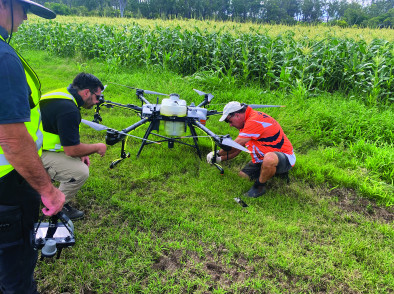Harnessing the Power of Drones: The Future of Smart Farming in New Zealand
As New Zealand’s horticultural landscape continues to evolve, new technologies are becoming increasingly prevalent. One of the most promising advancements in this area is the use of drones, or unmanned aerial vehicles (UAVs), to enhance farm management. Drones are transforming how growers monitor crops, apply treatments, and optimise yields, offering a range of benefits from increased efficiency to environmental sustainability.

Agricultural drones are specialised UAVs designed to assist with various farming tasks. These drones can survey large fields, capture high-resolution images, and provide real-time data on crop conditions. This technology allows growers to detect issues such as irrigation problems, pest infestations, or nutrient deficiencies that might be missed during ground-level inspections.
Spraying and seeding:
In certain circumstances, drones can offer more efficient ways to apply pesticides and fertilisers. Traditional methods can be less accurate and labour-intensive, but drones can be programmed to distribute these substances evenly, which reduces waste and minimises environmental impact. Additionally, drones equipped with seeding mechanisms can plant crops in areas that are difficult to access.
Watering:
Drones with certain technology can support the growth of healthy plants by monitoring water levels and soil moisture, helping growers identify areas needing more or less irrigation. This can lead to targeted watering, helping to conserve water.
Mapping and surveying:
Drones equipped with cameras and sensors can cover large areas, capturing detailed images and GPS data. This information helps create maps that can highlight variations in crop health and soil conditions. With these insights, growers can make informed decisions about where to focus their inputs, ensuring optimal crop performance.
Looking Ahead
When used correctly, drones can support productivity by allowing growers to cover more ground in less time with fewer resources. They can help provide data that leads to better farming practices, improving sustainability.
As technology advances, drones will offer even more features, such as real-time data analysis and autonomous operation. These innovations will make farming more efficient and resilient, helping growers meet the challenges of an ever-changing landscape.
↑ Australian growing operation, Mulgowie Farming Company, image of on-farm drone used for spraying (Image supplied).